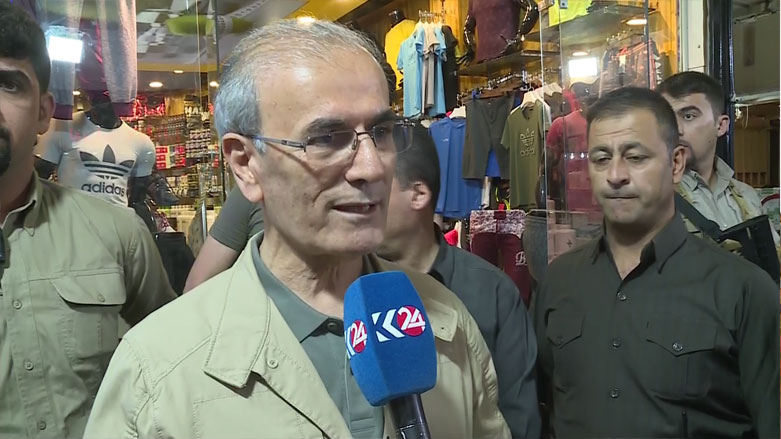Kirkuk secure, oil exports continue: Kurdish Governor

ERBIL, Kurdistan Region (Kurdistan 24) – The situation in Kirkuk remains stable and export of crude oil continues to flow abroad, Governor Najmaldin Karim said on Saturday.
Peshmerga forces on Saturday rejected the “deadline” set by Baghdad and the Iranian-backed Shiite Hashd al-Shaabi militia to “withdraw” from strategic areas south of Kirkuk.
“We won’t initiate a war, but if they attack, we would have no choice but to defend ourselves,” Karim told reporters on Saturday.
The crisis between Baghdad and Erbil has reached its most critical point following the Sep. 25 referendum as Iraqi forces and the Shiite paramilitary group began mobilizing troops around Kirkuk, confronting Peshmerga forces.
No skirmishes were recorded in the city of Kirkuk and surrounding areas, even as the “deadline” passed, said Kurdistan 24 correspondent Soran Kamaran on Sunday.
“We want to reassure the people of Kirkuk and dispel false allegations made about the so-called deteriorating security situation in the city,” affirmed Karim as he walked the streets and informing people “everything is under control.”
“The Kurdish leadership and the Peshmerga have declared they do not want war, and would rather engage in peaceful dialogue to resolve outstanding issues. Should Iraqi security forces start a conflict, we will protect all of the people of Kurdistan, regardless of their ethnic and religious background,” the Governor stated.
Since Erbil refused to cancel the results of the referendum, the Iraqi Parliament, Hashd al-Shaabi, also known as the Popular Mobilization Forces (PMF) and Iraqi Forces have threatened to retake disputed territories with the use of force.
Kirkuk is an oil-rich province which has been protected by the Peshmerga Forces since mid-2014 after the Iraqi army collapsed when faced with the threat of the Islamic State (IS). The province is composed of various ethnic and religious groups, including Arabs, Christians, and Turkmens, with Kurds being the largest group.
Editing by G.H. Renaud
